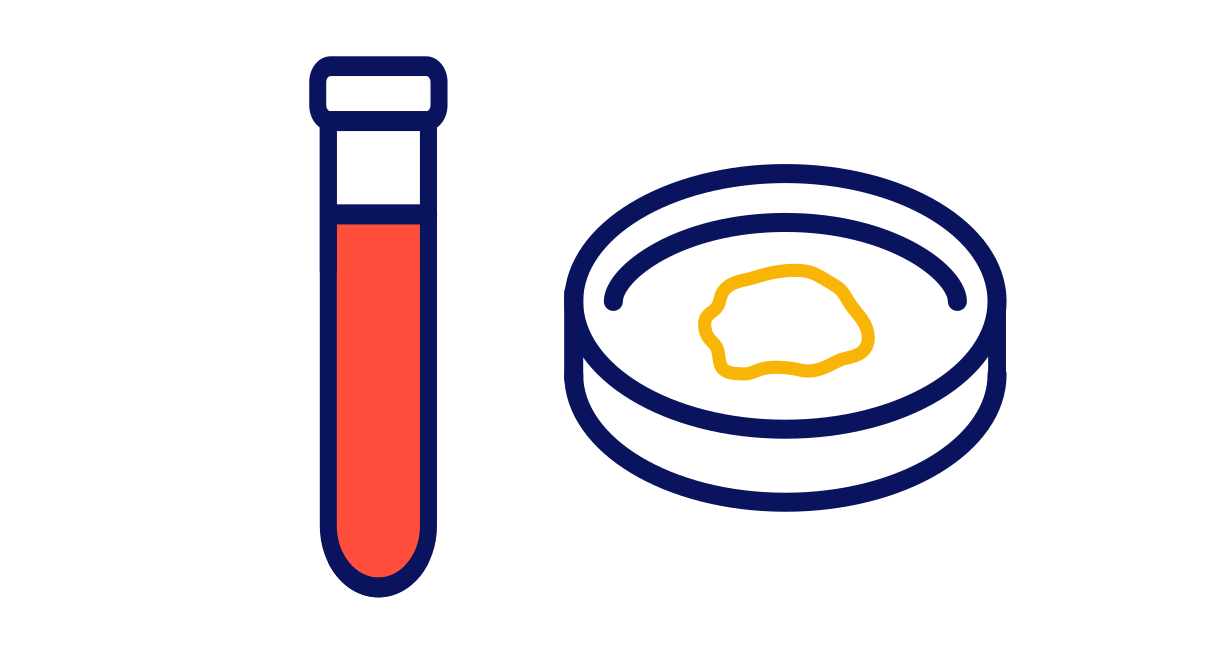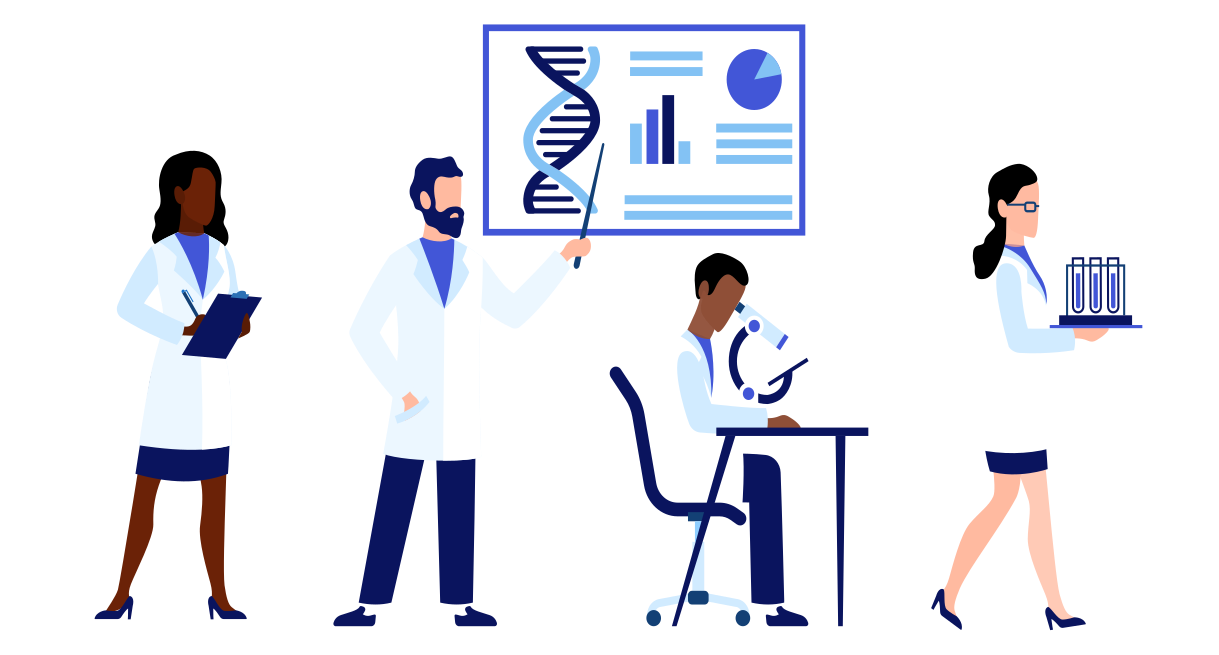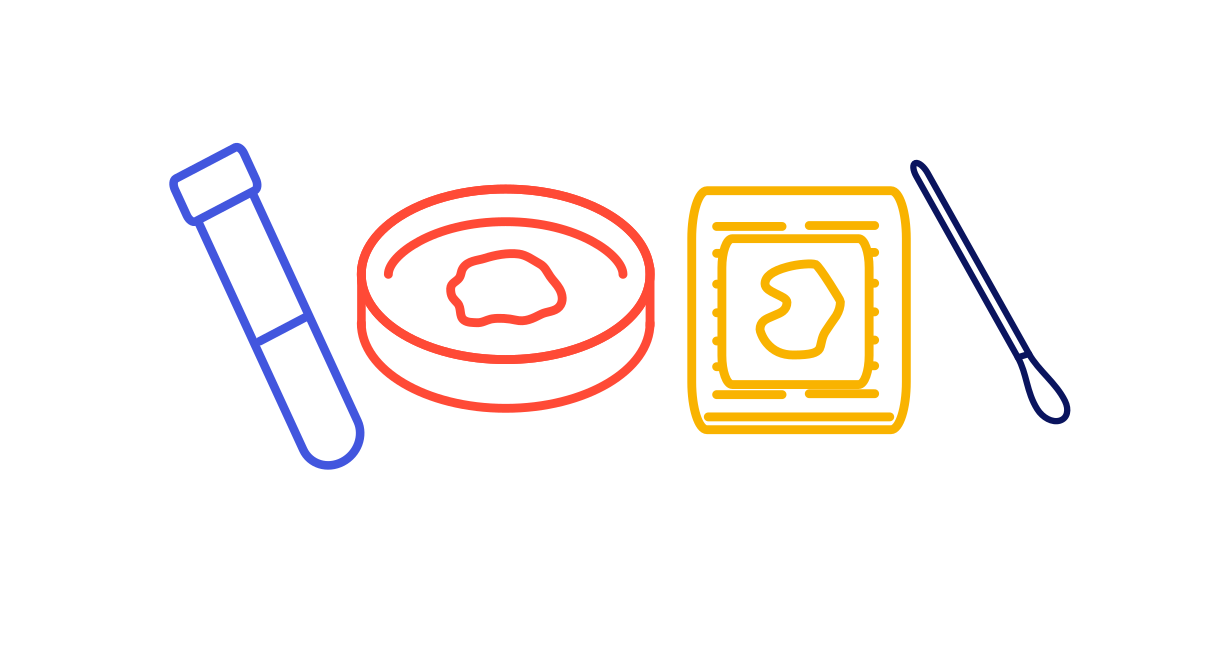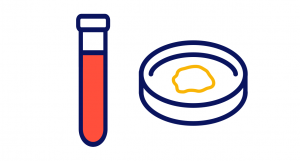Biospecimen collection for scientific research is categorized into two broad groupings: prospective and retrospective. In this article we will describe each of these biospecimen collection types, explain when and why they’re used, and provide some examples of the types of samples that can be obtained in each category.
Prospective Biospecimen Collections
A prospective collection is the collection of biospecimens from subjects in the future (ie. the samples do not already exist). There are two main instances where a researcher would require a prospective collection of samples:
1. They require fresh biospecimens ie. fresh whole blood samples, fresh tissue samples, etc.
2. They require stored biospecimens (ie. FFPE blocks, or frozen samples), but they are not able to find them already existing in a biobank/biorepository or through a commercial biospecimen provider. The reasons for this are:
- The samples or disease/indication they are looking for is rare.
- The samples that are available in stock do not meet their specific requirements. For example, they require more subject/sample data than is available, or they need multiple samples per subject, or their intended research use of the samples is not covered under the ethically approved uses of the samples.
Within the category of prospective collections, there are two types of collections that occur: ongoing and custom.
An ongoing collection is one where the IRB/IEC approval for a general collection protocol is already in place, and sample collection is ongoing. In this case, samples are generally being provided to multiple different researchers and companies, for many different research uses. Having this type of general collection protocol is common practice for many academic/hospital biobanks and commercial biospecimen providers. These organizations obtain ethical approval for general collection protocols for sample types that they know are commonly required by many different researchers. Having these general collection protocols already in place allows researchers to obtain commonly used sample types quicker and easier.
If the disease/indication you’re working on or the sample type you require is rare, or you’re not able to source the samples through an ongoing collection, it is likely that you will require a custom prospective collection. A custom collection is required when the IRB/IEC approval is not yet in place, and a custom protocol will need to be drafted and approved prior to starting the biospecimen collection. This route of obtaining biospecimens generally takes longer because, depending on the country from which you are sourcing the biospecimens, the ethical approval timelines can vary substantially from several weeks to several months.
Examples of Prospective Collections
1. A researcher requires fresh whole blood samples from healthy subjects – In this case, a prospective collection is required because the samples are needed fresh. This type of sample should be easy to obtain from an ongoing collection in place at an academic/hospital biobank or through a commercial biospecimen company.
2. The scientist requires matched frozen plasma, frozen serum and an FFPE tissue block from subjects with breast cancer – In this case, a prospective collection may be required due to the need for obtaining multiple sample types per subject. A custom prospective collection would likely be required for this type of request.
3. A client requires frozen plasma samples from subjects with multiple myeloma, where they intend to perform sequencing analysis on the samples. In this case, a prospective collection may be required due to the added specification that the samples will be used for sequencing analysis. A custom collection may be needed in this case to ensure ethical approval is obtained for this specific downstream use of the samples.
Retrospective Biospecimen Collections
A retrospective collection is a collection of biospecimens that have previously been stored/archived (ie. the samples already exist). Retrospective samples are generally stored long term either frozen (eg. serum, plasma, tissue, cells, DNA) or at room temperature (eg. FFPE blocks, slides).
There are two main reasons why biospecimens may have been previously collected and archived:
1. Diagnostic Remnant Samples
Diagnostic remnant samples (aka remnant clinical samples) are the remnants of samples collected as part of routine clinical care. Biospecimens are collected from patients and used in the clinical setting for diagnostic, prognostic and/or monitoring purposes. In many instances, the entire sample is not used up during the clinical test, and the remainder of the sample can be stored for repeat or subsequent analysis, as needed.
One good example of this is FFPE tissue blocks. These are used routinely for solid tumor cancer diagnosis, where a tissue sample (resection or biopsy) is taken from the patient and preserved as an FFPE tissue block. Tissue sections are then taken from the block and analyzed by a histopathologist to determine the stage, grade and specific histological type of the cancer. The remainder of the FFPE tissue block is then stored in case of subsequent analysis for a specified time period (storage timelines vary based on country specific guidelines, from a few years to several decades).
In the case of diagnostic remnant samples, ethical approval can be obtained at a later date to use the samples for research purposes. In most cases, these remnant samples are otherwise discarded.
2. Banked Samples
Banked samples are samples that are collected by biobanks/biorepositories (academic, hospital, commercial or other) for the purpose of future use in R&D. In this case, the biospecimens will have been collected with ethical approval for subsequent research use.
Biospecimens are collected in this manner for a number of purposes. For example, in the case of niche, disease-specific biobanks, samples may be collected which they know are in critical need for future research specific to that disease. In the case of commercial biospecimen providers or large, broad-focused biobanks, they may preemptively collect common biospecimens which they know are widely used/needed by many different researchers, so that they have the samples already available when they are needed. In either case, having biospecimens already collected, stored and available for use allows research studies to be performed quicker and easier.
Examples of Retrospective Collections
1. A researcher needs FFPE tissue blocks from subjects with stage III-IV lung cancer. In this case, samples can likely be sourced retrospectively as previous diagnostic remnant samples.
2. A scientist needs frozen, viable PBMC samples from subjects with chronic lymphocytic leukemia. In this case, samples might be able to be sourced retrospectively as banked samples via a niche disease-specific biobank or from a commercial biospecimen provider.









